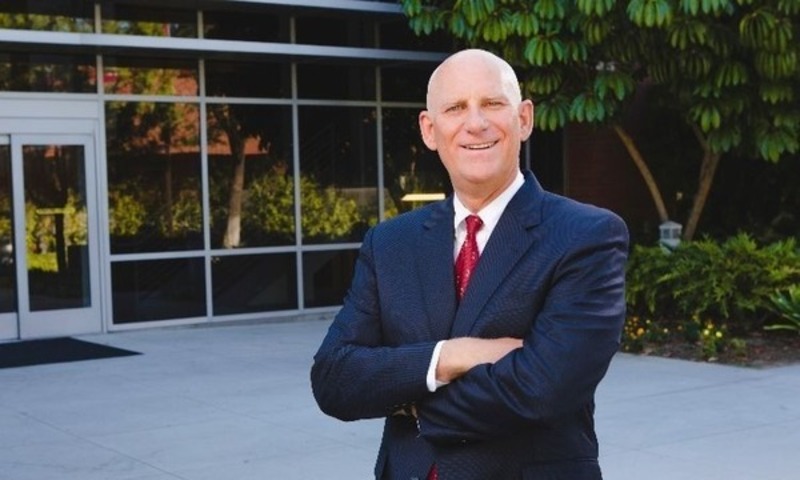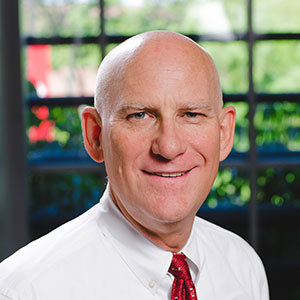Here’s a challenge for 2022: What if I brought more of myself, my real authentic self, into my workplace? I don’t just mean “I’m a Dallas Cowboys fan, and I’d like to let my workplace know that.” If you’re a Cowboys fan, I suspect those at work already know that about you.
No, I’m talking about bringing our real authentic selves into our workplace.
It seems to take a major disruption to get us to ask those kinds of questions. Many management experts [1] are suggesting that this pandemic requires we bring more of our authentic empathetic selves with us as we re-enter post-COVID workplaces.
Now let me expand the question in a deeper and perhaps more dangerous way: What if I brought more of my authentic empathetic follower-of-Jesus self to my workplace? Here is what could happen next.
Step One: The Life I Lead
My colleagues would see my competence, hard work, helpfulness and the way I respond to situations. Those who watch me closely and know how I spend my off-time may be drawn closer to considering the Jesus I follow. I think that’s our goal as Christians, that others can see a vision of Him as relevant to their life, family, work, career, culture and friendships.
But there are some necessary conditions for this outcome to occur:
It requires that I am good at my work, and that I contribute to the health, success and mission of the organization. Perhaps not everyone company-wide knows me, but among my colleagues, I’m considered a real contributor.
It requires that I already have a good relationship with those in my workplace, and that I have a modicum of emotional intelligence. I am viewed as ethical, with empathy for my colleagues, and not so outspokenly opinionated that others have already shut me off.
You can imagine that if such a person brought an authentic Christian faith to their workplace, they would be both a valued colleague and a witness for Christ.
But is that enough, or does it require more?
Step Two: The Words I Say
So now I am respected for my work contribution, have a good relationship with co-workers, and my life is in reasonable alignment with my Christian beliefs. But I struggle to find my authentic voice regarding my faith. My attempts at verbally sharing who I am as a believer may feel forced, awkward, inauthentic and maybe even unproductive.
This is probably inevitable. Talking about religion or politics is often fraught with misunderstanding, mistrust and miscommunication. This is a reality we as Christ-followers need to recognize and get a lot better at. Authentically integrating our faith-life into our expressive self — the self that’s revealed when we speak — takes practice. It also requires that I have an authentic inner faith life; that can’t be faked.
How might I develop more authentic communication skills? 51ÂÜŔň professors have some very helpful approaches — their latest is .
Step Three: The Questions I May Get
If my actions and work are reflective of my faith, and I have learned to speak in an authentic way, what may come next is a question which takes many forms but at its core is:
Can I ask you something?
At this point you may wish you’d listened harder in church or bought some of those apologetics books you saw online. But, at least in my experience, colleagues’ questions are rarely theological. Instead, they are deeply personal, and often not even a question at all:
I found out something about my high-school son last week, and I don’t know…
We went to see my mother last week … she’s not doing well and I don’t know…
I got this text from Hayden, the one from Accounting that I met at that party, and I don’t know…
After each I don’t know is the unspoken: but I thought you might…
Answering those questions requires a level of articulateness and knowledge, an ability to listen, and some spiritual insight — let’s call this wisdom. Where does wisdom come from? Let’s go to the first chapter of Proverbs:
The proverbs of Solomon son of David, king of Israel: for gaining wisdom and instruction; for understanding words of insight….The fear of the Lord is the beginning of knowledge, but fools despise wisdom and instruction.
These questions also require a perspective that treats co-workers (or, if you are a manager, your employees) as precious beings made in the image of God, not as annoyances who make your day longer or as competitors who are also after raises and promotions. Treating “business as ministry” means treating coworkers as neighbors to be loved, not as “labor” or “resources” to be managed. The perhaps-apocryphal Henry Ford quote, “Why is it, every time I ask for a pair of hands, they come with a human being attached?” may come to mind, but has no place in this conversation.
Step Four: The Roadblocks I May Face
Now, you have found your authentic Christian voice, and it’s often well received. You believe some co-workers are getting a more accurate understanding of who Jesus is by your example, by your words and by your care for them.
However, there may be some above you who don’t like you bringing your faith into the organization, and perhaps they just don’t think you’re “the right person” for that promotion or plum assignment.
After C.S. Lewis published Pilgrim’s Regress and The Problem of Pain, he was asked by the BBC during WWII to bring an authentic Christian voice to the spiritual needs of the beleaguered British people. Lewis didn’t think he was the right person, but those radio broadcasts were very successful and became the book Mere Christianity.
This led to Lewis writing and speaking to a much wider audience than the typical Oxford tutor. However, the subject matter — the Christian faith — was "outside" Lewis’ academic discipline, English literature. The publication and popularity of his “children’s books” (e.g., Narnia) didn’t help his professional standing at Oxford, either. Lewis was overlooked for promotion for years until, in 1954, he was offered a senior position at Cambridge, Oxford’s competitor.
This still happens. Bob Doll was, until his recent retirement, a Senior Portfolio Manager at Nuveen. His outside-the-workplace Christian witness and activity led his previous employer to demand he either stop that activity or resign his high-profile position. He decided that his involvement in the and many other Christian organizations deeply reflected his authentic self, so he doubled down on his involvement and found the right employer at Nuveen.
The Take-Away
Bringing more of my authentic Christ-following self to work will bring both risk and reward. The outcome can’t be guaranteed, and we may not see the results for years, or even until eternity. Thus, the question: Is bringing my authentic Christ-following self to the workplace an option, or am I commanded to do so? My suspicion is that it comes with the territory of being a disciple of Christ.
1 Peter 3:15 reads, “But in your hearts revere Christ as Lord. Always be prepared to give an answer to everyone who asks you to give a reason for the hope that you have. But do this with gentleness and respect…”
And Peter’s “always” includes our time in the workplace, on social media, and in all of life.
Please keep us in your prayers, as you are in ours.
Dr. Gary Lindblad
Dean, Crowell School of Business, 51ÂÜŔň
NOTES
[1] See the , , , , and the , among others.
 51ÂÜŔň
51ÂÜŔň

.jpg)
.jpg)

